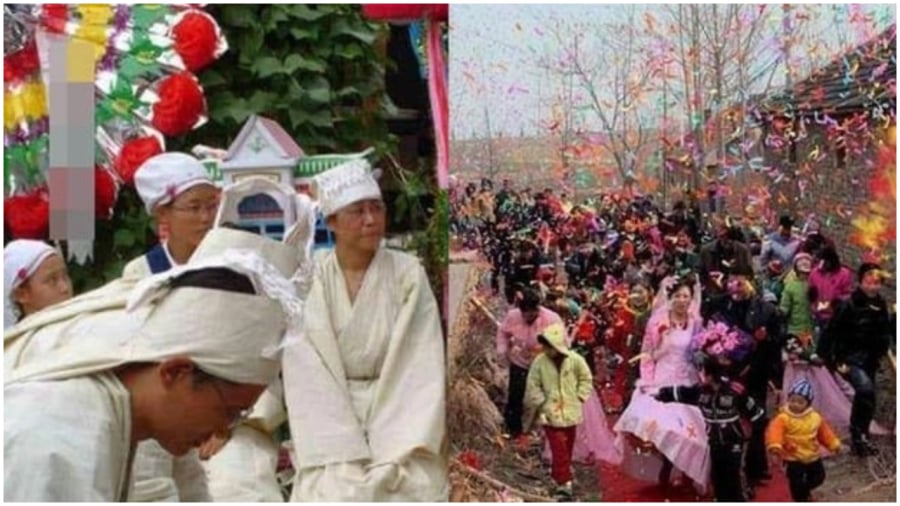Why would you lend your house for a funeral but not a wedding?
In modern times, lending your house for a funeral is considered unlucky. Most people are uncomfortable with the idea of having a coffin, funeral wreath, or mourning ceremony in their home. Thus, it is rare for someone to lend their house for such an occasion.
However, our ancestors had a different perspective. They believed that once a person passed away, they had left the mortal world forever. Therefore, holding a funeral in a particular place would take away any bad luck or misfortune from that location. Additionally, the Chinese word for “coffin” (“guan tai”) also signifies “rising official fortune.” As such, our ancestors saw the coffin as an invitation to good fortune.

Lending your house for a funeral is considered more fortunate than lending it for a wedding
In the past, some poor rural families couldn’t afford to hold a funeral. Thus, those who were better off would lend their homes for the ceremony. Our ancestors viewed lending your house for a funeral as a virtuous act, believing it would attract good luck and fortune without any taboo.
Don’t lend your house for a wedding
This is akin to saying, “Don’t lend your house to a married couple for their honeymoon.” Our ancestors believed that doing so would bring bad luck and misfortune to the family. Additionally, the newlywed couple would consummate their marriage, which was considered to taint the house for the owners. Hence, lending a house for a wedding was not favored.
From a feng shui perspective, this was also seen as an ill omen. In many places, when a married couple visited their hometown, they would sleep separately instead of sharing a bed as they usually would. Even after a daughter got married and returned to her mother’s house, she and her husband would sleep in separate rooms. Some believed that a married couple sharing a room in the wife’s parental home was inauspicious.

Why do our ancestors say it’s better to lend your house for a funeral than a wedding?
However, in modern times, there is no taboo against lending your house for a wedding. Nowadays, it’s not uncommon for couples to share a bed in places other than their own homes. Perspectives and beliefs have evolved, rendering our ancestors’ views on this matter outdated.
This information is for reference only.





































